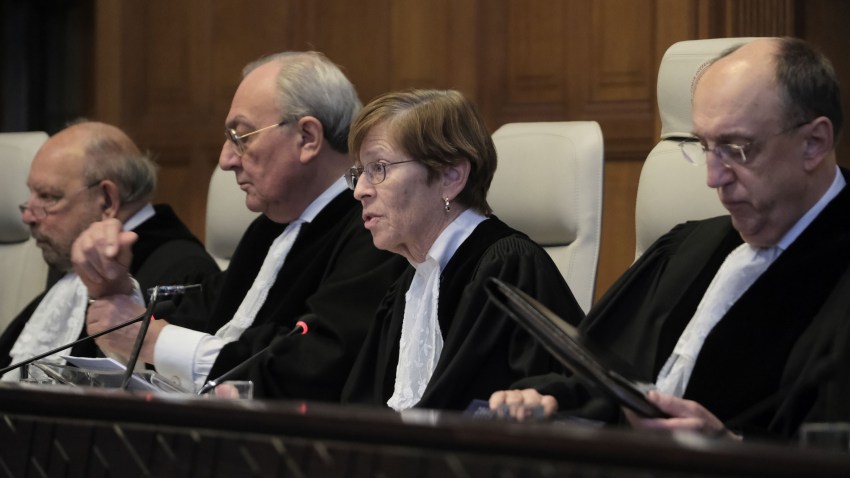Last week, 17 judges from the International Court of Justice issued a preliminary ruling in the case of South Africa v. Israel on the question of whether Israel may be committing genocide against the Palestinian people in waging its war against Hamas in Gaza, as well as on whether to uphold South Africa’s request for an injunction against further hostilities. The court’s provisional finding was that it would hear the case and that, while it did so, Israel could continue the war, but should report back in a month to demonstrate that it was not in fact committing genocide.
The ruling was not surprising given the allegations of genocide specifically—as opposed to other crimes such as forced displacement, collective punishment, apartheid or various crimes against humanity considered to violate customary law—and the venue: an international civil court where states can sue one another, rather than a criminal court where perpetrators of atrocities can be held individually accountable. The court noted in paragraph 14 of its ruling how this legal approach limited what it could consider, despite a series of United Nations resolutions drawing attention to other legal dimensions of the case.
As law scholar Oona Hathaway explains, there was never any chance that the ICJ would return an immediate genocide ruling. The crime of genocide is legally challenging to prove: Prosecutors must show not just that terrible acts are being carried out but also that they are being carried out with the explicit intent to destroy a national, ethnic, racial or religious group “as such.” Genocide allegations are also extremely politically charged and, in this case, viewed by many as grossly hypocritical, given Hamas’ attacks on Israeli civilians and its own genocidal rhetoric. This made it unlikely that the ICJ would issue a one-sided order that Israel stop its attacks on Hamas, as South Africa had asked, when the court—which only has jurisdiction over states—could not order Hamas to do the same.

